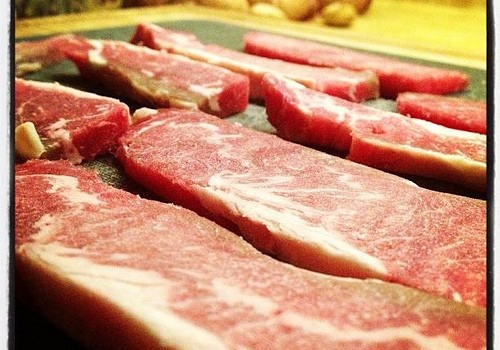
Lean Cuts Of Beef - A Source Of Protein, B Vitamins And Iron
As well as being an excellent source of protein, beef contains essential B vitamins such as riboflavin and niacin, as well as iron, needed for red blood cells. But consumption should be limited to once or twice a week at most. This is because beef has high cholesterol content. It also contains saturated fat, which is associated with risk of heart disease. Even meat which is trimmed of all visible fat, will still have a relatively high fat content, making it quite high in calories. To reduce calories and fat content, look for leaner cuts such as sirloin. The protein content will also vary with the different cuts and quality of the meat.
- Important notification about information and brand names used in this slideshow!
- farm9.staticflickr.com/8219/8324059536_e976dd2306.jpg
- www.livestrong.com/article/112559-top-protein-foods/
- http://nutritiondata.self.com/facts/beef-products/3477/2

Grilled Chicken Is High In Protein But Low In Fat
Chicken is a good source of protein, containing 27g of it in a 3oz portion. It also contains B vitamins, selenium (an antioxidant) and tryptophan (needed for nitrogen balance and production of vitamin B6 and serotonin). It is also a very good source of all the essential amino acids (those which we cannot manufacture, but have to obtain from foods). Reduce the number of calories and fat in chicken by grilling or oven-cooking instead of frying. A high proportion of the fat is contained in the skin so be sure to remove it and any visible fat before eating. (Eating the skin can increase calories by as much as 141%!). Dark chicken meat is also higher in fat than the light meat, so should be avoided.
- Important notification about information and brand names used in this slideshow!
- farm5.staticflickr.com/4023/4458637929_715d7da4ae_z.jpg
- www.livestrong.com/article/112559-top-protein-foods/
- http://ods.od.nih.gov/factsheets/Selenium-HealthProfessional/
- http://www.nlm.nih.gov/medlineplus/ency/article/002332.htm
- http://bodyforlife.com/library/articles/nutrition/protein-power-not-all-protein-is-created-equal-we-bring-you-the-best-of-the-best

Yogurt Makes A Great Low-Fat Source Of Protein
A cup of yogurt provides 8-12g of protein (check individual labels for exact protein content) so a few portions a day can make a valuable, low fat contribution to daily protein intake. Depending on body weight and sex we need about 46-56g of protein a day. In addition, yogurt contains B vitamins, iodine and calcium. Calcium and vitamin D are needed together for healthy bones and some yogurts are supplemented with this vitamin. Yogurts are made using bacteria, but they can be killed during the process. These bacteria are beneficial to the health of the digestive tract and aid digestion. So look out for those which are labeled as having live and active cultures, meaning that the bacterial content has been preserved. Make sure you don't undo that goodness by choosing yogurts with high sugar content.
- Important notification about information and brand names used in this slideshow!
- farm4.staticflickr.com/3218/2984055114_7795926aa1_z.jpg
- lowcarbdiets.about.com/od/whattoeat/a/highproteinfood.htm
- http://www.livestrong.com/article/112559-top-protein-foods/
- http://www.webmd.com/diet/features/benefits-of-yogurt
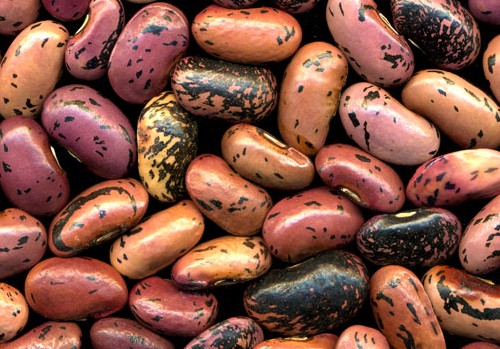
Beans Are A Good Vegetarian Source Of Protein
Beans come in so many shapes, colors and flavors that you can make them a daily additional to your cooking - add to soups, chillis, salads, pasta dishes etc. While high in protein (garbanzo beans have 15g protein per cup), they are remarkably low in fat, but also rich in fiber, making them a truly healthy option. The fiber in beans has a cholesterol-lowering effect but also ensures the carbohydrate content is slowly released, avoiding dramatic rises in blood sugar levels following a meal. Many beans also contain additional nutrients, which can preserve health. An example is kidney beans which are readily available dried, or ready to eat in cans. These beans contain high levels of a mineral called molybdenum which counteracts the effects of substances called sulphites in ready-made food.
- Important notification about information and brand names used in this slideshow!
- farm1.staticflickr.com/159/411880413_61af38a704_o.jpg
- www.livestrong.com/article/112559-top-protein-foods/
- http://www.soya.be/nutritional-values-of-soybeans.php
- http://www.whfoods.com/genpage.php?tname=foodspice&dbid=87
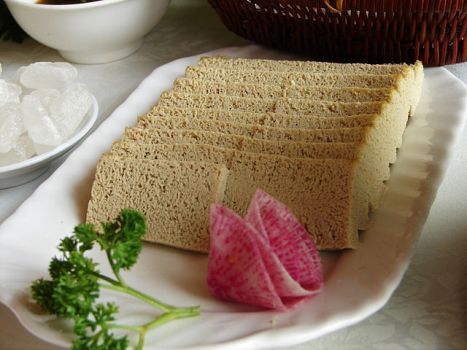
Tofu Is A High Protein Food Which Goes Well In Many Dishes
Tofu has a similar protein content to nuts (a 3g slice or 85g has 6g protein) and is a good choice because it is low in fat and calories. It is makes a useful addition to all kinds of dishes as it readily absorbs the flavors of other ingredients. Tofu is a product of soybeans, the milk or liquid extract of the beans is ‘curdled’ which means the proteins are coagulated, to form a solid ‘cake’. Tempeh is a similar soybean product which uses bacterial fermentation to coagulate the proteins. Fermented soybean products have been shown to contain antioxidants, which increase in quantity with length of fermentation process. As well as being a very good vegetarian source of protein, there are many health benefits associated with tofu. For example it has been found to reduce the incidence of stomach cancer better than other soy products. It also lowers cholesterol levels, helping to reduce the risk of heart disease.
- Important notification about information and brand names used in this slideshow!
- Photo courtesy of J. Samuel Burner on Commons.Wikimedia : http://commons.wikimedia.org/wiki/File:Dong_Dou_Fu_(tofu).jpg
- www.healthaliciousness.com/articles/foods-highest-in-protein.php
- http://www.whfoods.com/genpage.php?tname=foodspice&dbid=150
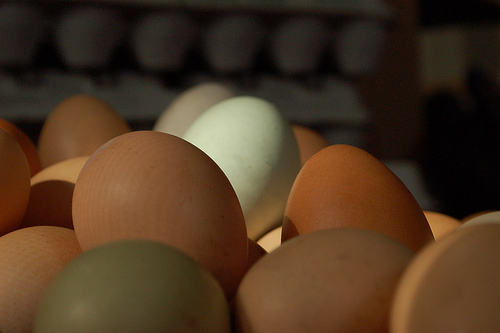
Eggs Are A Complete Protein
Eggs are one of the few foods considered to be a complete protein as they contain the nine essential amino acids which we must obtain from food (as our bodies cannot manufacture them). Eggs are the ultimate flexible cooking ingredient as they can be incorporated in all manner of dishes, as well as eaten on their own, poached, boiled or scrambled. One large egg (50g) contains 6g protein and they are relatively low in calories but full of antioxidants, vitamins and minerals. In particular eggs contain more choline (a B vitamin) but fewer calories than other foods which supply this nutrient. Eggs are also rich in idione and selenium. Take no notice of information claiming that one part of the egg (white or yolk) is more nutritious than the other, as the nutrients are fairly equally distributed between the two.
- Important notification about information and brand names used in this slideshow!
- Photo courtesy of Carly&Art by Flickr : www.flickr.com/photos/wiredwitch/4495285806/
- www.getcracking.ca/dozenreasons.html
- http://www.whfoods.com/genpage.php?tname=foodspice&dbid=92
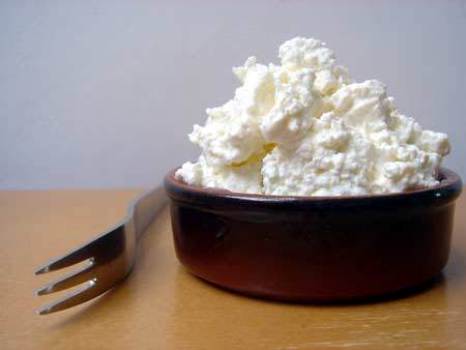
Cottage Cheese Is A Low-Fat Dairy Source Of Protein
While cheese in general is a good vegetarian source of protein and calcium, it tends to be high in saturated fat, making it high in calories and bad for health if eaten in excess. But cottage cheese make this nutritious food an acceptable source of protein, being much lower in fat than other types of cheese and providing the highest quantity of protein per calorie, compared with other cheeses: 28g of cottage cheese contains 9g of protein and about 42 calories. For this reason cottage cheese is a good way of obtaining the recommended intake of three cups of dairy food a day. Dairy food is an important part of our diet because of its calcium content and cottage cheese is particularly rich in this mineral, providing 125mg per cup. Always be sure to choose a low fat version and be aware that it can be high in sodium although low-sodium versions are available for those who need to restrict it.
- Important notification about information and brand names used in this slideshow!
- Photo courtesy of linz_nelson by Photobucket : media.photobucket.com/user/linz_nelson1981/media/CottageCheese.jpg.html?filters[term]=cottage%20cheese&filters[primary]=images&sort=1&o=38
- www.healthaliciousness.com/articles/foods-highest-in-protein.php
- http://healthyeating.sfgate.com/health-benefits-fatfree-cottage-cheese-8081.html
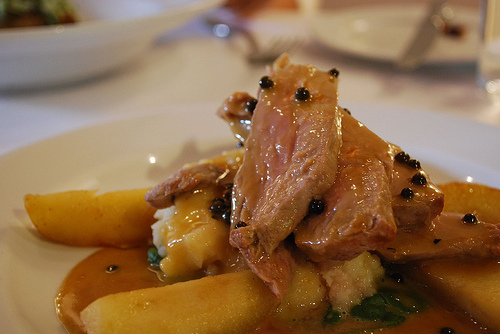
Pork Products Have Good Protein Content But Watch Out For The Fat
An average pork chop has 22g of protein, 4oz of pork loin or tenderloin has 29g and 3oz ham has 19g. (Calculate your daily protein requirement by multiplying your weight in kilograms by 0.8, or in pounds by 0.37). Pork has a higher fat content than other sources of protein, so should only be an occasional (not daily) part of your diet. Keep calories down by grilling or baking, drain off fat from cooking and trim off all visible before eating. Although there is no proven link between pork and diseases like swine flu, experts recommend always cooking it to an internal temperature of at least 160°F (72°C). Special thermometers are available to check the temperature of cooked meat.
- Important notification about information and brand names used in this slideshow!
- Photo courtesy of Alpha by Flickr : www.flickr.com/photos/avlxyz/4247014740/
- lowcarbdiets.about.com/od/whattoeat/a/highproteinfood.htm
- http://lowcarbdiets.about.com/od/nutrition/a/protein.htm
- http://www.whfoods.com/genpage.php?tname=george&dbid=248
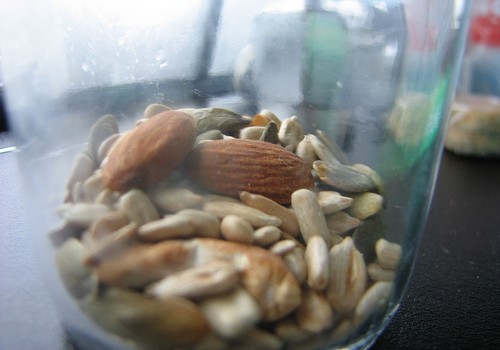
Nuts And Seeds Make Nutritious Nibbles
A quarter of a cup of nuts such as almonds or peanuts contain 8-9g of protein, so can make a valuable contribution to your daily protein intake. Many nuts, such as almonds, also contain other health ingredients, such as iodine, calcium and B vitamins. But remember that nuts are high in calories due to their fat content (although it's a healthy fat), so limit your intake. Sunflower, pumpkin and flax seeds are also a valuable source of protein, containing 6-8g of protein in a quarter cup. Some seeds, such as flax are also a good source of fibre, but like nuts they are high in calories due to their fat content.
- Important notification about information and brand names used in this slideshow!
- Photo courtesy of ben dalton by Flickr : www.flickr.com/photos/noii/4503200473/
- lowcarbdiets.about.com/od/whattoeat/a/highproteinfood.htm
- http://nutritiondata.self.com/facts/nut-and-seed-products/3163/2
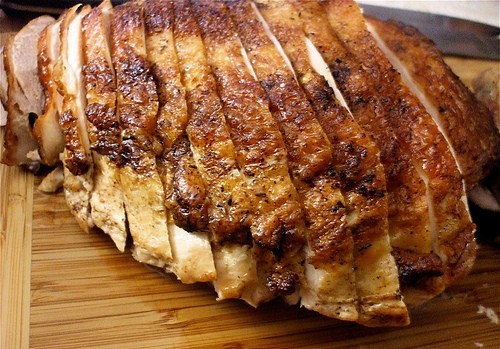
Turkey Breasts - A Good Source Of Tryptophan
As well as being a good, low fat source of protein, turkey is also high in the essential amino acid tryptophan, supplying 100% of recommended daily intake. Tryptophan enables us to manufacture niacin (a B vitamin) and also serotonin. This is a chemical which is active in the brain, making us calm and facilitating sleep. (That's where the myth that turkey makes you sleepy came from!). Along with a few other high-protein foods, turkey has been found to reduce the normal insulin ‘spike’ following eating. Reducing insulin levels following meals means you will stay feeling full for longer and may have an impact on the risk of developing diabetes. The welfare and type of feed given to turkeys has been shown to have an impact on how nutritious the meet is.
- Important notification about information and brand names used in this slideshow!
- Photo courtesy by mookieluv on Flickr : www.flickr.com/photos/mookieluv/4147933039/
- www.healthaliciousness.com/articles/foods-highest-in-protein.php
- http://www.livestrong.com/article/112559-top-protein-foods/
- http://science.howstuffworks.com/innovation/edible-innovations/question519.htm
- http://www.whfoods.com/genpage.php?tname=foodspice&dbid=125
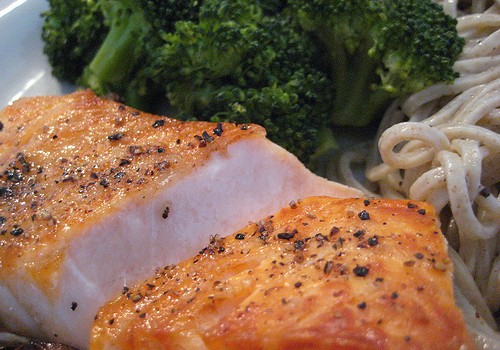
Fish Is An Excellent Source Of Protein And Omega-3 Fatty Acids
Fish is an excellent choice as a source of protein as many are low in fat, as well as being high in protein. Oily fishes such as salmon and tuna are higher in calories so should be enjoyed in moderation. But the oils in these fish have health benefits as they are polyunsaturated (good) fats and also contain important omega-3 fatty acids, which lower cholesterol and triglycerides in the blood. They may also lower blood pressure and have effects on blood platelets and artery walls, preventing clots from forming and causing heart attacks. There is also some evidence to show that omega-3 fatty acids may reduce the risk of developing dementia.
- Important notification about information and brand names used in this slideshow!
- Photo courtesy of infowidget by Flickr : www.flickr.com/photos/infowidget/2320515127/
- www.fitday.com/fitness-articles/nutrition/carbs/the-7-best-sources-of-protein.html
- http://link.springer.com/article/10.2165/00003495-199447030-00003
- http://ferran.torres.name/edu/sp/download/articulos/Dementia%20and%20Omega-3.%20Review.pdf



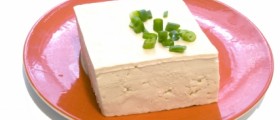
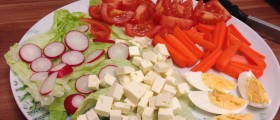
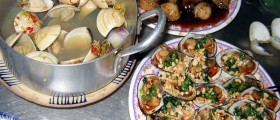

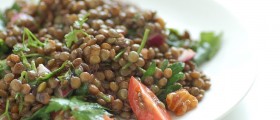
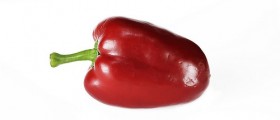
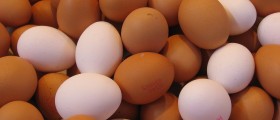
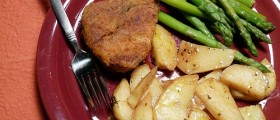
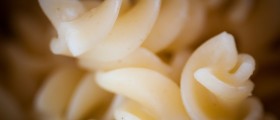
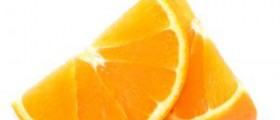
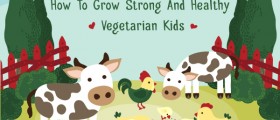
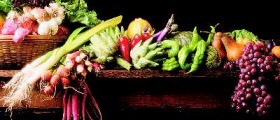
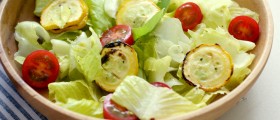

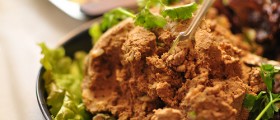
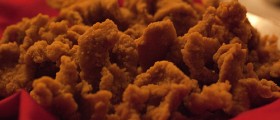
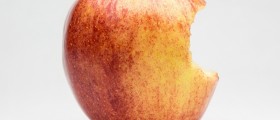

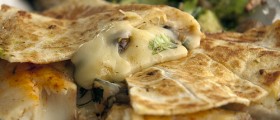
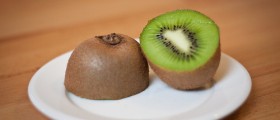
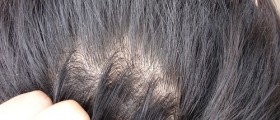

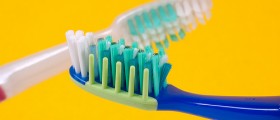
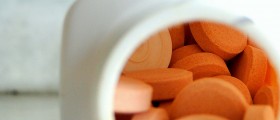
Your thoughts on this
Loading...